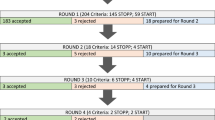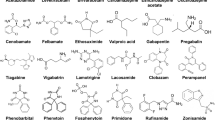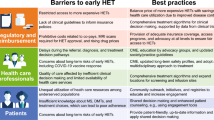Abstract
The pharmacologic treatment of schizophrenia presents several challenges: 1) available treatments are incompletely and variably effective; 2) treatments take time to show their full effects; and 3) different benefits and adverse effects of treatment appear over different time frames. To aid in treatment decisions, clinicians are inundated with information that can be difficult to digest and integrate. Treatment often is provided within systems of care that limit the range of available treatment options. To preserve broad treatment options and facilitate optimal care, the State of Florida has developed a comprehensive program to provide several tools to the treating physician, and systems of care to promote optimally effective and efficient pharmacotherapy for each individual with schizophrenia. Although a formal evaluation of its effectiveness is underway, the program has been uniformly well received and considered to be very useful in helping clinicians and treatment systems efficiently provide schizophrenia patients with the best currently available pharmacologic treatment. Elements of the program and its evolution and operation are described.
Similar content being viewed by others
References and Recommended Reading
American Psychiatric Association:Practice guideline for the treatment of patients with schizophrenia.Am J Psychiatry 2004,161(Suppl 2):1–56.
Nasrallah HA, Targum SD, Tandon R, et al.:Clinical effectiveness in the treatment of schizophrenia: an evolving paradigm.Psychiatr Serv 2005,56:273–282.
Lieberman JA, Murray RM:Comprehensive care of schizophrenia: a textbook of clinical management. London: Martin Dunitz; 2000.
Bustillo J, Lauriello J, Horan W, et al.:The psychosocial treatment of schizophrenia: an update.Am J Psychiatry 2001,158:163–175.
Bruen B, Ghosh A:Medicaid Prescription Drug Spending and Use. Kaiser Commission on Medicaid and the Uninsured, Washington D.C., 2005.
Lehman AF, Steinwachs DS:Translating research into practice: the schizophrenia patient outcomes research team (PORT) treatment recommendations.Schizophr Bull 1998,24:1–10.
President’s New Freedom Commission on Mental Health:Achieving the promise: transforming mental health care in America, final report. July 2003. http://www.mentalhealthcommission.gov/reports/reports.html
Goldman HH, Azrin ST:Public policy and evidence-based practice.Psychiatr Clin North Am 2001,52:1591–1597.
Torrey WC, Drake RL, Dixon L, et al.:Implementing evidence-based practices for persons with severe mental illnesses.Psychiatr Services 2001,52:45–50.
Ganguly R, Kotzan LA, Miller LS, et al.:Prevalence, trends, and factors associated with antipsychotic polypharmacy among Medicaid-eligible schizophrenia patients 1998–2000.J Clin Psychiatry 2004,65:1377–1388
Miller AL, Hall CS, Buchanan RW, et al.:The Texas Medication Algorithm Project antipsychotic algorithm for schizophrenia: 2003 update.J Clin Psychiatry 2004,65:500–508.
McEvoy IP, Scheifler PL, Frances A:The expert consensus guideline series: treatment of schizophrenia 1999.J Clin Psychiatry 1999,60(Suppl 11):1–90.
Lehman AF, Buchanan RW, Dickerson FB, et al.:Evidence-based treatment for schizophrenia.Psychiatr Clin North Am 2003,26:939–954.
Mellman TA, Miller AL, Weissman EM, et al.:Evidence-based pharmacologic treatment for people with severe mental illness: a focus on guidelines and algorithms.Psychiatr Serv, 2001,52:619–625.
Surles RC:Atypical antipsychotics: considerations for Medicaid coverage.Am J Manag Care 2005,11(Suppl):S248-S253.
West JC, Wilk JE, Olfson M, et al.:Patterns and quality of treatment for patients with schizophrenia in routine clinical practice.Psychiatr Services 2005,56:283–291.
Fixsen DL, Naoom SF, Blasé KA, et al.:Implementation Research: A synthesis of the literature. University of South Florida, FMHI Publication #231, Tampa, 2005.
Tandon R, Fleischhacker WW:Comparative efficacy of antipsychotics in the treatment of schizophrenia.Schizophr Res 2005,79:145–155.
Leucht S, Pitschel-Walz G, Abraham D, et al.:Efficacy and extrapyramidal side-effects of the new antipsychotics olanzapine, quetiapine, risperidone, and sertindole compared to conventional antipsychotics and placebo.Schizophr Res 1999,35:51–68.
Davis JM, Chen N, Glick ID:A meta-analysis of the efficacy of second-generation antipsychotics.Arch Gen Psychiatry 2003,60:553–564.
Lieberman JA, Stroup TS, McEvoy JP, et al.:Effectivesness of antipsychotic drugs in patients with chronic schizophrenia.N Engl J Med 2005,353:1209–1223.
Kane J, Leucht S, Carpenter D, Docherty JP:Expert consensus guideline series. Optimizing pharmacologic treatment of psychotic disorders. Introduction: methods, commentary, and summary.J Clin Psychiatry 2003,64(Suppl 12):5–19.
Tandon R:Safety and tolerability: how do newer generation “atypical” antipsychotics compare? Psychiatr Q 2002,73:297–311.
Kane J, Honigfeld G, Singer J, et al.:Clozapine for the treatment-resistant schizophrenic: a double-blind comparison with chlorpromazine.Arch Gen Psychiatry 1988,45:789–796.
Tandon R, Dewan NA, Constantine RJ, Wells J:Best practice pharmacological treatment of schizophrenia: Applying principles of evidence-based medicine.Curr Psychosis and Ther Report 2005,3:53–60.
American Diabetes Association, American Psychiatric Association, American Association of Clinical Endocrinologists, North American Association for the Study of Obesity:Consensus development conference on antipsychotic drugs and obesity and diabetes.J Clin Psychiatry 2004,65:267–272.
Marder SR, Essock SM, Miller AL, et al.:Physical health monitoring of patients with schizophrenia.Am J Psychiatry 2004,161:1334–1349.
Parks J, Surles R:Using best practices to manage psychiatric medications under Medicaid.Psychiatr Serv 2004,55:1227–1229.
Lawrie SM, Scott AIF, Sharpe MC:Implementing evidence-based psychiatry: whose responsibility? Br J Psychiatry 2001,178:195–196.
Author information
Authors and Affiliations
Corresponding author
Rights and permissions
About this article
Cite this article
Constantine, R.J., Richard, S.M., Surles, R.C. et al. Optimizing pharmacotherapy of schizophrenia: Tools for the psychiatrist. Current Psychosis & Therapeutics Reports 4, 5–11 (2006). https://doi.org/10.1007/BF02629408
Issue Date:
DOI: https://doi.org/10.1007/BF02629408




